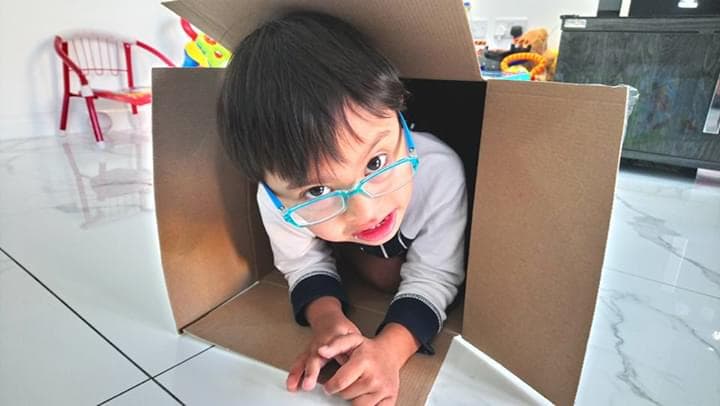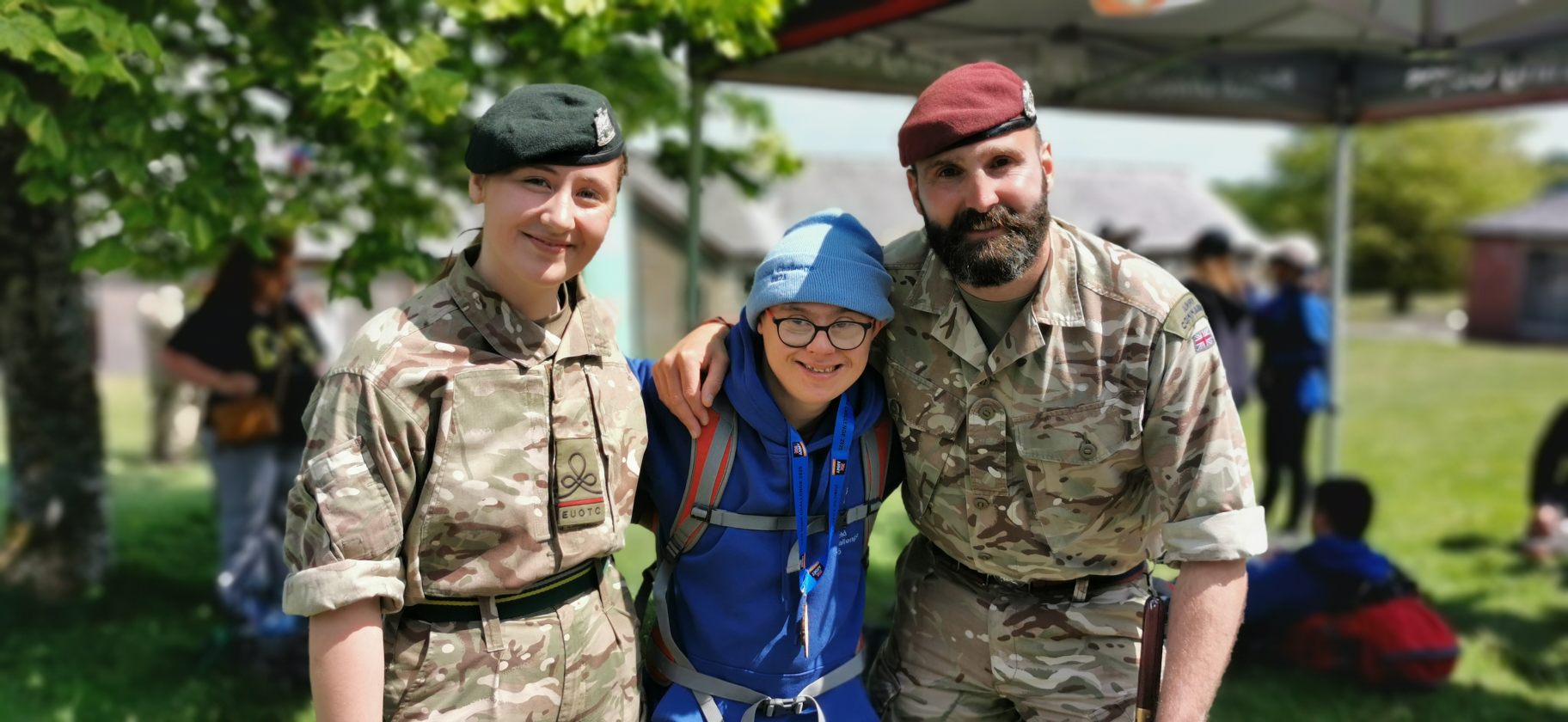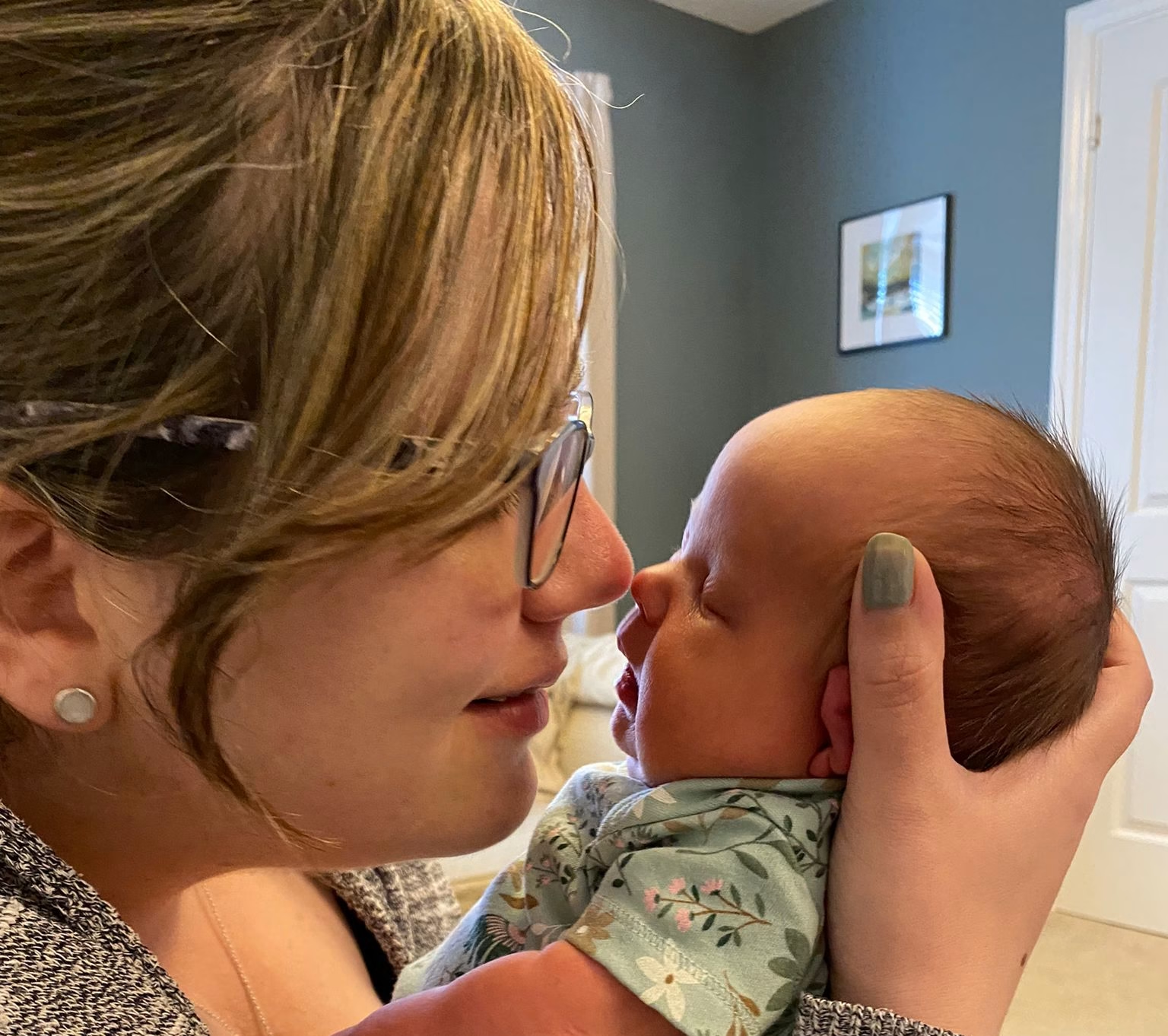- by Down Syndrome UK
Infantile spasms (IS), sometimes called West syndrome, are a rare but serious type of epilepsy. It can affect around 400 children in the UK each year, and around 3% of babies with Down syndrome. Because the signs can be subtle, it is often parents who first notice symptoms.
In our Positive about Down syndrome (PADS) community, several parents have bravely shared their stories to raise awareness. Their experiences show us just how important it is to trust your instincts and seek urgent help.
Jacob’s story
Amy first noticed something unusual when Jacob was sitting in his highchair.
“I thought I noticed his head drop slightly… That evening, when he was in bed, I did a bit of Googling and remembered that I’d read information about this before on the PADS New Parents Facebook group.”
The next day, Jacob had a cluster of movements: his arms pulled upwards and backwards, his legs scrunched in towards his tummy. Amy and her husband knew something wasn’t right. They filmed the movements and went straight to A&E.
Jacob was quickly given an EEG, which confirmed the diagnosis of infantile spasms. With treatment, his spasms stopped within 48 hours. The following weeks were difficult, but Amy says support from PADS parents and UKIST made all the difference.
Ollie’s story
Ollie’s mum had also read about infantile spasms in the PADS New Parents group. When Ollie began making unusual movements, she recognised the signs.
“His arms would outstretch; his legs would pull up to his tummy and his eyes got very staring and vacant, slightly popping out or rolling back. He would do this a few times in a row about once a day. It then became more frequent.”
She filmed the episodes and showed them to her health visitor, who agreed Ollie needed urgent attention. He was diagnosed with IS and started on treatment immediately.
The medication was hard on Ollie, and there were relapses along the way. But after months of persistence and changes to his treatment plan, his spasms finally stopped.
“The drugs they start with are harsh and it does feel like they lose their personality. But this is short term, and the priority is to treat IS. They will get their personality back I promise.”
Quinn’s story
When Quinn was diagnosed with IS, his mum knew exactly what to ask for because she had already read another parent’s story in the PADS group.
“Awareness is so important. If it hadn’t been for another mama’s post and a video in PADS group, I may not have been so quick to seek treatment or so pushy for an EEG.”
At first, Quinn’s spasms looked like small jolts, similar to the startle reflex. But they quickly progressed into clusters. He was admitted for treatment straight away, and although the steroid medication was tough, it worked.
“Once we started to wean Quinn off them, slowly our boy came back to us. The first smile was just beyond amazing!”
Today, Quinn is thriving – he loves singing, dancing, and spending time with his friends.
What parents want others to know
Across these stories, some clear messages stand out:
- Infantile spasms can look subtle, but if something doesn’t feel right, trust your instincts.
- Video episodes to show doctors – this can help speed up diagnosis.
- IS needs an urgent EEG and treatment.
- Having the support of other parents who have been there makes an enormous difference.
Support and information
If you are worried about infantile spasms, remember that it is a medical emergency. Go straight to A&E and ask for an urgent review.
For more information and support, visit:
You can also download our Infantile spasms lived experience guide (PDF), which includes the full stories from parents in our community.
Share this post
Author

Down Syndrome UK is a national parent led charity passionate about empowering parents and professionals to improve the lives of those with Down syndrome. We have an amazing community for our families and know how important it is for them to have access to accurate contemporary information and meaningful support.
View all posts






